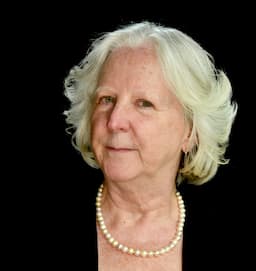Sunshine after the Rain — Vaneetha Risner
I married an incredible man two weeks ago. It was one of the happiest days of my life.
In a letter to him on our wedding day, I told him that he was the answer to my deepest prayers and better than my wildest dreams.
I’m still feeling euphoric. I can’t believe that this is my life. I keep thinking I’ll wake up to find it’s all been a dream.
This sense of bliss is unfamiliar to me. For many years, my reality felt more like a nightmare than a dream. I had resigned myself to thinking that life would always be hard, crying myself to sleep was normal, and happiness was for “other people.”
I memorized Psalm 30:5, “Weeping may last for a night, but joy comes in the morning,” though I doubted its application to me. When my morning was coming? Was it coming at all? The night seemed endlessly long and my weary tear-filled eyes could not see even a glimmer of light. For some, their weeping period was brief and contained, yet for others, the night stretched into years. And when the night is measured by decades, it’s hard to believe that morning will ever dawn.
When I found myself in a night that seemed to go on forever, I vacillated between faith & hopelessness, between peace & terror, between light & darkness. The blackness would often envelop me till I could scarcely breathe. Those days were filled with tears and my only release came with intermittent sleep. I would give into self-pity and wish that I had never been born. Job did that – I reasoned that I could too.
Other times I would try to ignore the pain, stuffing my feelings as deep as I could manage, stoically going on with my life. I squelched expectations of anything good happening – that way I couldn’t be disappointed. Those days were fueled only by duty. It was basically resignation, though it vaguely resembled contentment.
Some mornings I would grab my Bible and sit with God as long as I could. I would try to grab hold of Him and cry out, as Jacob did, “I will not let you go unless you bless me.” I would journal about my pain, read the Bible, and sit in God’s presence. I would wait until I sensed a word from Him – usually spoken from the Scripture – and that word would carry me through the day.
And lastly, some days I was able to intentionally and deliberately choose to be joyful even when my heart was breaking. Even when life felt empty and hopeless. Even when my time with the Lord left me feeling alone and unchanged. On those days in particular, I forced myself to be thankful even for small things and to set my mind on the truth of what I knew about God rather than my feelings.
It was a constant battle, a continual fight for joy. A battle that I lost as often as I won. But what changed me wasn’t in losing or winning the battle, but rather in simply engaging the fight.
At the time, I didn’t see any of this. At the time all I could see was life disintegrating. At the time, I just wanted the pain to stop. It didn’t occur to me that anything good or noble or worthwhile was happening. But this learning to depend on God, to cry out to him, to find beauty in the everyday, was training my heart to see beyond my circumstances. And that sight continued long after the storm had passed.
Learning to dance in the rain did more for my soul than dancing in the sunshine ever could.
I am thrilled to be in the sunshine right now, but I am more grateful than ever for what I learned in the storm. For the sun seems to shine more brightly when it appears after the rain.
It is almost as though the rain gives the sunshine more meaning. The rain enabled me to appreciate to the sun. For without it, the sunshine would be expected and ordinary. It would go unnoticed. It is the contrast that makes the sun even more spectacular to me.
Knowing sorrow has magnified my joy.
Kahlil Gibran, a secular poet, says in his book The Prophet, “Your joy is your sorrow unmasked. And the selfsame well from which your laughter rises was oftentimes filled with your tears. And how else can it be? The deeper that sorrow carves into your being, the more joy you can contain.”
The deeper that sorrow carves into your being, the more joy you can contain.
Sorrow is a profound gift.
Sorrow teaches me to see God and trust Him more. Sorrow helps me recognize and appreciate happiness and sunlight. And as Gibran astutely observes, sorrow increases my capacity for joy. Sorrow has made my joy deeper, richer, more vibrant than it ever would have been otherwise.
My joy is rooted in knowing that God has ordained all my days and circumstances. And He is using all of them to make me like Jesus. He will not let me suffer one minute longer than is needed to accomplish His good purposes.
One of those purposes has been to help me fully enjoy the present without fear. I know what a blessing it is when God brings happiness and sunshine into my life. I love days full of laughter and delight.
At the same time, I know there are treasures reserved for the darkness. Treasures that last not only for this life but also for the next. Treasures that are sweet and intensely personal. So when I return to the night, for a brief or an extended period of time, I know these treasures await me.
God has used both sunshine and darkness to shape me. They have taught me to be dependent on Him, for He is the one constant in an ever-changing world. My life cannot be rooted in anything else.
I love being married and adore my new husband, but he cannot fill my soul or give me everlasting joy.
Jesus is the only one that can do that, and always will be. In blazing sunshine or in torrential downpours, He is the one that satisfies my soul, gives me joy, and teaches me to dance in the rain.





